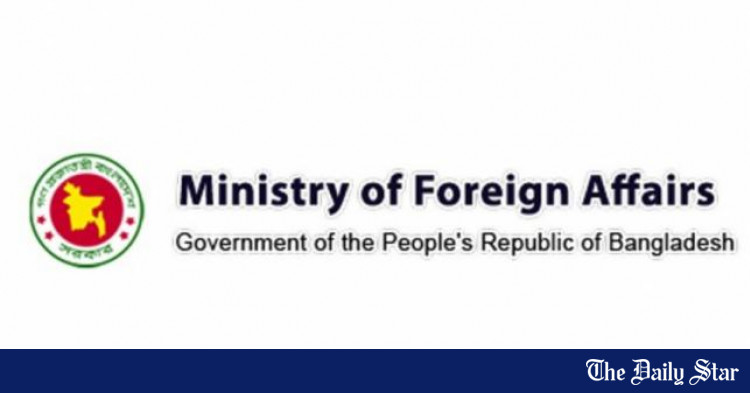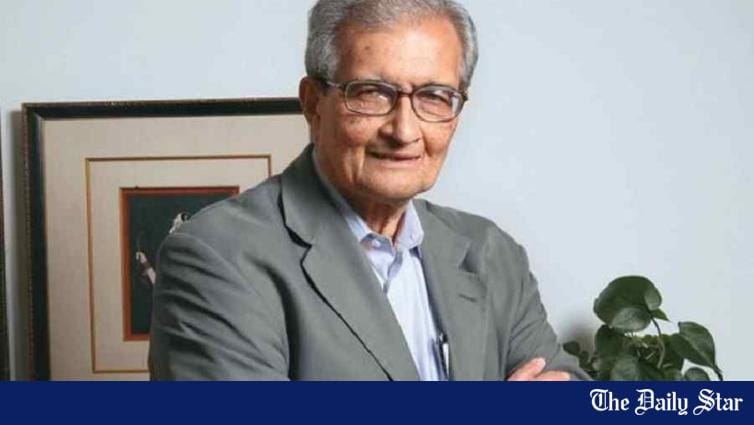Saif
Senior Operative
- 13,277
- 7,271
- Origin

- Axis Group

- Copy to clipboard
- Thread starter
- #89

India’s statement ‘unwarranted and unexpected’
New Delhi’s comments on the demolition of Bangabandhu’s house on Dhanmondi 32 is uncalled-for and unexpected, said foreign affairs ministry spokesperson Rafiqul Alam yesterday.
India’s statement ‘unwarranted and unexpected’
Says Dhaka about Delhi’s remarks on demolition of Dhanmondi 32

New Delhi's comments on the demolition of Bangabandhu's house on Dhanmondi 32 is uncalled-for and unexpected, said foreign affairs ministry spokesperson Rafiqul Alam yesterday.
The political comments Sheikh Hasina made from her refuge in New Delhi were not taken well by the people of Bangladesh, Rafiqul told reporters.
"On February 5, a situation was created over the statements of the former prime minister. The interim government has already clarified its position," he told reporters.
On February 6, Indian Ministry of External Affairs (MEA) spokesperson Randhir Jaiswal said it was regrettable that the historic residence of Sheikh Mujibur Rahman had been destroyed.
"All those who value the freedom struggle that nurtured Bangla identity and pride are aware of the importance of this residence for the national consciousness of Bangladesh. This act of vandalism should be strongly condemned," he said.
Rafiqul yesterday said, "We have seen some situations arise in the neighbouring country. But Bangladesh does not comment on the internal affairs of other countries. Bangladesh expects the same from others."
Bangladesh-India relations have been strained since deposed prime minister Sheikh Hasina fled to India on August 5 amid a mass uprising.
In December last year, Dhaka requested New Delhi to extradite Hasina, who faces numerous cases of crimes against humanity. Dhaka also requested New Delhi to prevent Hasina from issuing statements.
Last week, Mofa summoned Indian Acting High Commissioner in Dhaka Pawan Badhe to lodge a protest over Hasina's comments.
On Feb 7, Indian MEA summoned Bangladesh Acting High Commissioner to India, Nural Islam, and conveyed that "India desires a positive, constructive and mutually beneficial relationship with Bangladesh."
Regarding reports that a few Bangladeshis were getting involved in the Russia-Ukraine war, Rafiqul said the foreign ministry has ordered the Bangladesh mission in Moscow to probe the matter.
According to media reports, several Bangladeshi victims of human trafficking gangs were involved in the war.
"We learned that an agency sent some Bangladeshis to Russia and forced them to be involved in the war. We asked the Bangladesh embassy in Russia to investigate the matter," the spokesperson said.
Law enforcers also arrested an agent in Bangladesh and were instructed to take actions against any travel or recruiting agents involved in such crimes.
The government instructed the airports and immigrations to be cautious.
Rafiqul said earlier, Sulaiman Kabir, a Bangladeshi, was forced to take part in the Russia-Ukraine war. He later took shelter in the Bangladesh embassy in Moscow, which later arranged his repatriation home.
"If anyone in trouble contacts the Bangladesh embassy, it will take measures to repatriate them home."
Asked if the foreign ministry flagged it to the Russian government, the spokesperson said this is human trafficking, and the government has no role in it. "We have alerted all the agencies concerned."
In the wake of a war in the Democratic Republic of Congo, some structures have been destroyed by the bombing, but Bangladeshi peacekeepers were unhurt, he said.
Rafiqul said a cargo plane of Bangladesh Air Force has been transferred to Uganda and three helicopters have been transferred to a different location for safety.
Except for the Bangladeshi peacekeepers, there are no Bangladeshi citizens residing in Congo, he said.
The latest UN figures suggest 2,900 people have been killed since early January as a result of the hostilities between rebel group M23 and armed forces of the DR Congo, while around 700,000 are estimated to have been displaced and thousands more injured.
Says Dhaka about Delhi’s remarks on demolition of Dhanmondi 32
New Delhi's comments on the demolition of Bangabandhu's house on Dhanmondi 32 is uncalled-for and unexpected, said foreign affairs ministry spokesperson Rafiqul Alam yesterday.
The political comments Sheikh Hasina made from her refuge in New Delhi were not taken well by the people of Bangladesh, Rafiqul told reporters.
"On February 5, a situation was created over the statements of the former prime minister. The interim government has already clarified its position," he told reporters.
On February 6, Indian Ministry of External Affairs (MEA) spokesperson Randhir Jaiswal said it was regrettable that the historic residence of Sheikh Mujibur Rahman had been destroyed.
"All those who value the freedom struggle that nurtured Bangla identity and pride are aware of the importance of this residence for the national consciousness of Bangladesh. This act of vandalism should be strongly condemned," he said.
Rafiqul yesterday said, "We have seen some situations arise in the neighbouring country. But Bangladesh does not comment on the internal affairs of other countries. Bangladesh expects the same from others."
Bangladesh-India relations have been strained since deposed prime minister Sheikh Hasina fled to India on August 5 amid a mass uprising.
In December last year, Dhaka requested New Delhi to extradite Hasina, who faces numerous cases of crimes against humanity. Dhaka also requested New Delhi to prevent Hasina from issuing statements.
Last week, Mofa summoned Indian Acting High Commissioner in Dhaka Pawan Badhe to lodge a protest over Hasina's comments.
On Feb 7, Indian MEA summoned Bangladesh Acting High Commissioner to India, Nural Islam, and conveyed that "India desires a positive, constructive and mutually beneficial relationship with Bangladesh."
Regarding reports that a few Bangladeshis were getting involved in the Russia-Ukraine war, Rafiqul said the foreign ministry has ordered the Bangladesh mission in Moscow to probe the matter.
According to media reports, several Bangladeshi victims of human trafficking gangs were involved in the war.
"We learned that an agency sent some Bangladeshis to Russia and forced them to be involved in the war. We asked the Bangladesh embassy in Russia to investigate the matter," the spokesperson said.
Law enforcers also arrested an agent in Bangladesh and were instructed to take actions against any travel or recruiting agents involved in such crimes.
The government instructed the airports and immigrations to be cautious.
Rafiqul said earlier, Sulaiman Kabir, a Bangladeshi, was forced to take part in the Russia-Ukraine war. He later took shelter in the Bangladesh embassy in Moscow, which later arranged his repatriation home.
"If anyone in trouble contacts the Bangladesh embassy, it will take measures to repatriate them home."
Asked if the foreign ministry flagged it to the Russian government, the spokesperson said this is human trafficking, and the government has no role in it. "We have alerted all the agencies concerned."
In the wake of a war in the Democratic Republic of Congo, some structures have been destroyed by the bombing, but Bangladeshi peacekeepers were unhurt, he said.
Rafiqul said a cargo plane of Bangladesh Air Force has been transferred to Uganda and three helicopters have been transferred to a different location for safety.
Except for the Bangladeshi peacekeepers, there are no Bangladeshi citizens residing in Congo, he said.
The latest UN figures suggest 2,900 people have been killed since early January as a result of the hostilities between rebel group M23 and armed forces of the DR Congo, while around 700,000 are estimated to have been displaced and thousands more injured.






